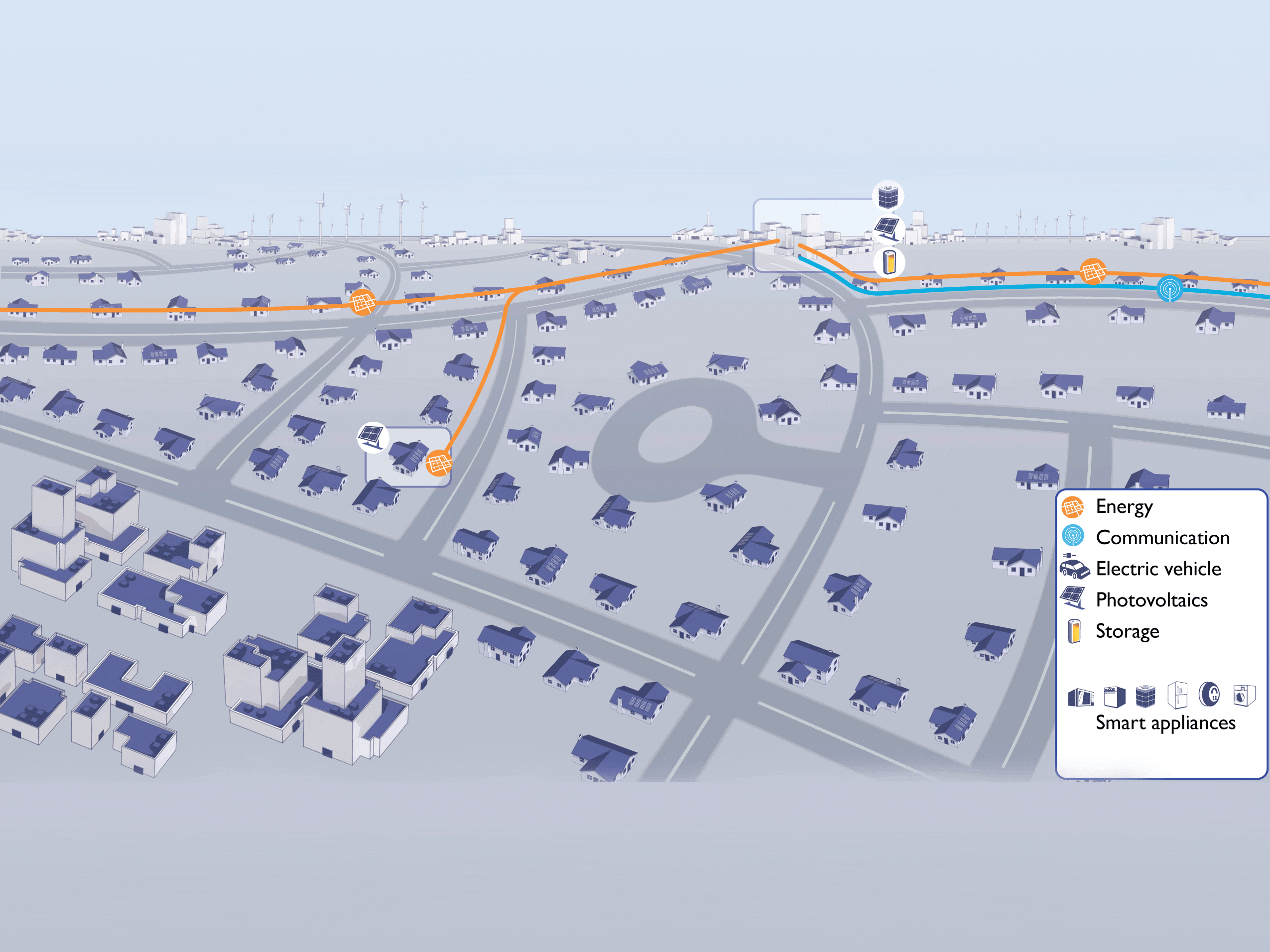Texas Engineers have turned to the research community to help solve a complicated energy problem, one that is likely top of mind for many Texans after the February storms that knocked out power for millions.
The CityLearn Challenge, now in its second edition, tasks research teams from around the globe with creating control systems for virtual neighborhoods composed of nine buildings to best maximize energy efficiency. The teams must program an "intelligent agent" that uses a machine learning model called reinforcement learning, a way of training machine learning models to make a sequence of decisions with a specific goal or reward in mind and a trial-and-error component. Participating teams’ intelligent agents must make energy usage decisions with a goal of reducing the load on the grid during times of high demand.
In the future, buildings will have more and more internet-connected appliances and be able to communicate with the grid and with each other to manage their combined electricity demand and reduce the strain on the grid.

February's outages across Texas came from a combination of high demand due to the snow and ice storms and power plants going offline that put tremendous strain on the grid. As a result, utilities had to "shed load" by shutting off power to residents, but, because of the conditions, they weren't able to bring that load back online for almost a week.
"If you could shift that load instead of shedding it, that would mean no one would have faced blackouts," said Zoltan Nagy, an assistant professor in the Department of Civil, Architectural and Environmental Engineering who is one of the leaders of the challenge. "That situation was an example of this problem, taken to an emergency level."
And that's exactly the problem this challenge is attempting to tackle. The teams of mostly students are given a simulation of four years of weather, and then the intelligent control systems are programmed to handle power demand based on conditions. Teams will be scored by a number of metrics, including how well their intelligent systems manage peak demand, total amount of electricity used, emissions and more.
Ideally, the teams would be able to achieve a situation where they could manage peak demand during times of challenging conditions in ways that would avoid overloading the grid.
Last year, four teams signed up for the challenge, and this year, there are more than 10 teams competing. There is a cash prize for the winner this year, and submissions are open until July 25.
This year's challenge is sponsored by the Energy Institute and the Machine Learning Laboratory at The University of Texas at Austin; Onboard Data of Cambridge, Massachusetts; and the Renewable and Sustainable Energy Institute at the University of Colorado Boulder.
Gregor Henze, a professor from UC Boulder's Department of Civil, Environmental and Architectural Engineering, is a pioneer in using reinforcement learning algorithms to manage building energy use. Henze gave a distinguished lecture about this for UT’s civil, architectural and environmental engineering department in 2019. Nagy, who is a roboticist-turned-building-engineer, was already thinking about the problems of energy usage and his research group had built the virtual neighborhood. He approached Henze and, along with then-graduate student Jose Vazquez-Canteli, they came up with the idea of starting the CityLearn contest.
Last year, Nagy, Henze and Vazquez-Canteli published a paper on reinforcement learning on building energy usage. In addition to the research, starting the contest made sense, Nagy says, because it is such a challenging, and increasingly important, problem to solve that having more minds from many different disciplines tackle it can help bring a solution.
"The old model of electricity demand is dead, because we have to stop using coal and reduce gas use," Nagy said. "Now we are working with renewables that aren't always there, so we need to think more about how we store that energy, how much storage we need, who has access to it and who pays for it. It's a really intricate problem."







